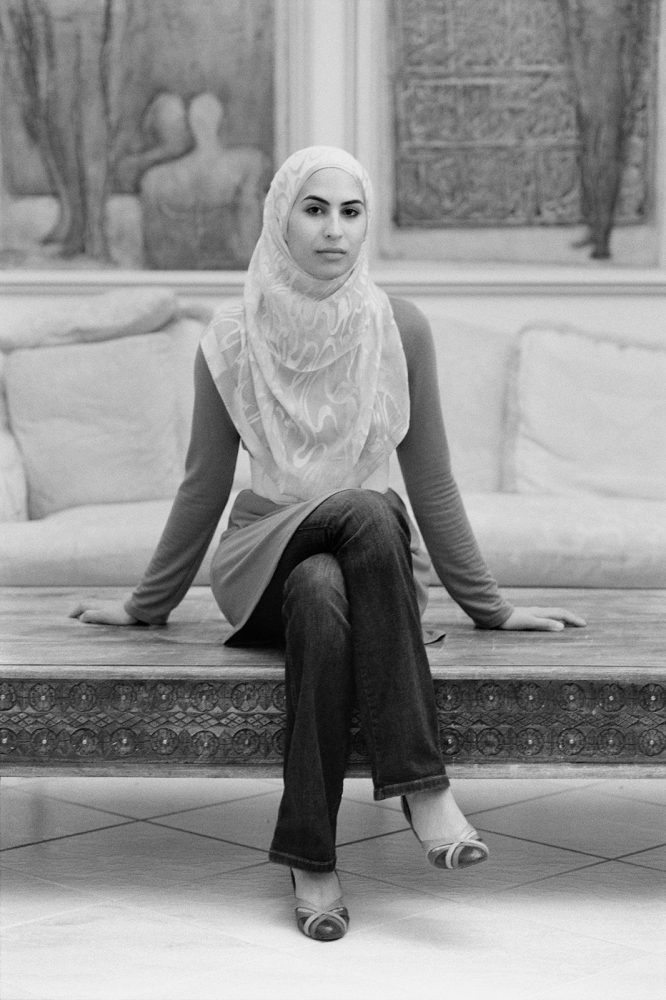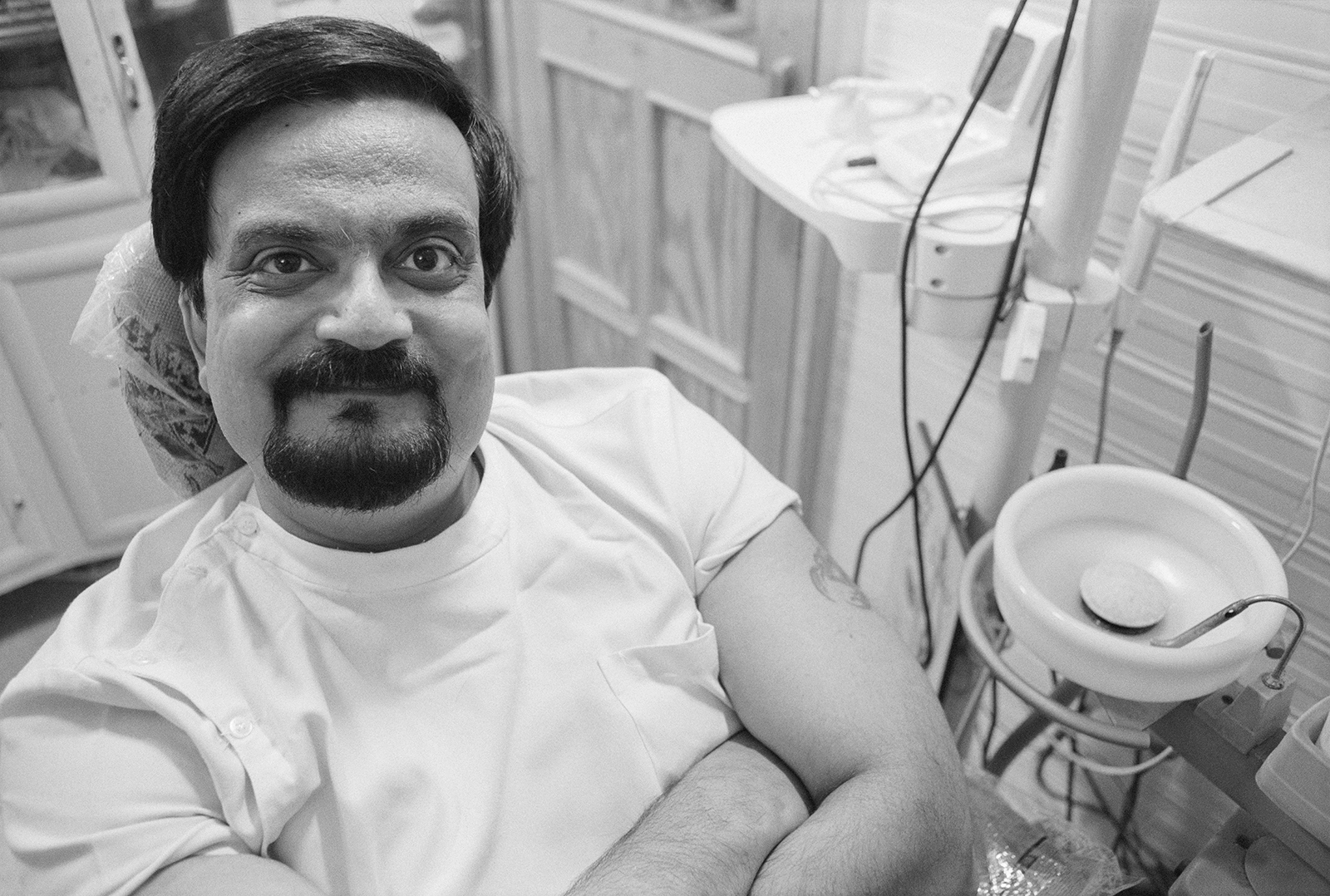HELPING MUSLIMS UNDERSTAND ISLAM
“I identify as a Palestinian and also as a Canadian. I’m an artist. I like composition, colour, and texture. I work mainly in painting, drawing 2D, and I’m a graphic designer. My dream is to get back into conceptual contemporary art and to represent my faith through art.
After world events like September 11th, people started to think, ‘What is this Islam and why do you identify yourself with such a horrible religion?’ They had all these negative perspectives of religion. And I realized that I wanted to understand why these people thought so negatively. Why did I think I was Muslim when I didn’t practice? I wondered, ‘Why don’t I pray?’
My greatest wish is to be a very powerful tool in making people understand the true version of Islam—not the messed up, misused, misrepresented version. I just want for Islam in general to be understood properly by Americans, Jews, or whatever, and by Muslims. Muslims, I feel, aren’t even doing their part. So my greatest wish is obviously to start with myself and bring everyone around me to help out in that purpose.”
Daniel’s Reflection
Laila Masri lives between multiple worlds. She identifies as Palestinian, Canadian, and Emirati. Her mixed identity, combined with her talent, has produced a gifted artist who is able to express the “search for belonging while existing in contradictory social and cultural settings.”
Laila’s spiritual journey began when she travelled from Dubai to Canada for her university years. When 9/11 happened, she was confronted by the question of why she identified with this Muslim religion that so many were calling evil. Her search took her to many interfaith activities: Campus Crusade for Christ, the Jewish student group Hillel, and to campus Muslim groups. She decided to wear the hijab. When she returned to Dubai, her many friends were surprised to see their very progressive friend wearing a hijab and having become an observant Muslim.
Laila created many provocative works surrounding her transition back to the Muslim and Arab world, including a very moving set of videos of her putting on and taking off the hijab. I was moved by Laila’s struggle to understand why she felt more respected back in Canada as an observant Muslim than by the much more materialistic society in Dubai.
I have often contemplated whether my sisters and I would have grown up with such a strong Jewish identity had our family not moved to Atlanta, Georgia in the late 1960s. As a Southern Jew, I felt much more discrimination than I would have felt growing up in our native Cleveland, Ohio. And, yet, being in the South put me in touch with Jewish kids who were also eager to express their identity and make meaning of it. In the end, I am grateful for growing up as a minority and all the lessons of empathy and identity it taught me.
I see in Laila Masri’s life and art the same lessons. She is a woman who has multiple identities, a deeply meaningful spiritual journey, and a gift for creating visual art that helps me make sense of being part of a complex world.







